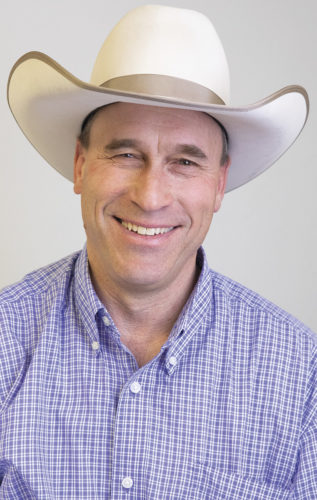This sudden and unexpected deluge of rain brought with it some unexpected blessings and challenges.
For the farmers, too much rain at the wrong time can turn harvest into a nightmare. While the spud harvest went fairly well, for the most part – as the timing of the storms seemed to cooperate quite nicely with most of the digging – the sugar beet harvest, which is later in the season, turned into a muddy adventure for many of my neighbors.
One of the seemingly reliable reports I heard from a fairly reliable and honest beet digger was that he measured 5 inches of rain at his farm during the month of November. Five inches! Did our weather orders get crossed with Brazil’s order? That is literally almost half of the annual normal expected precipitation for that area.
As for me, I was mostly grateful for the welcome wet. Except for about 30 acres of meager third-crop hay that we’d cut, I figured the rain did much more good than harm.
We’re poor farmers, at best, anyway, so leaving the hay in the windrows for the cows to use this winter worked out fine for me. The unseasonably warm temperatures and the jungle-like rain, however, did cause a wrinkle or two in the normal order of things.
In most years, when it comes time to gather the cows off the mountain in mid-October, we’ve already gone through a good frost or two, and quite often, we’ve had a couple snowstorms. By then, the cows are all too eager to come home.
Home – where they can live the easy life for a while, after the calves have been weaned, grazing in the hayfields and not having to travel more than a half mile or so to water. Why would they want to hang around in the high country, with its cold weather, sparse water and dry feed?
This year was different though. The fall rains and warm temperatures brought something that is rarely seen in this country: green fall feed. The old girls seemed to find no real incentive to trail home.
After the first few days of riding, we had gathered most of the cows, but we were still out a pretty good pile of cows and a third of the bulls. From that point on, we were relying on Mother Nature, helpful neighbors, sharp-eyed hunters and luck to get everything home.
Since the first real cold weather and snow didn’t come until the end of November, it made for a unique fall. When the grass is greener somewhere else, the prospects at home are not quite as enticing as they might otherwise be.
Five-and-a-half years ago, our first grandchild was born. Our daughter and son-in-law were finishing up their undergraduate degrees before they headed to Laramie, where my son-in-law would go on to get his master’s degree in range science at the University of Wyoming.
My wife had spent the week after the baby was born with my daughter to help with the baby and to hopefully pass on some motherly wisdom that she’d gained by passing through the gauntlet of raising five kids. I made the trip over to eastern Idaho to see the first of the next generation and to pick up the new grandma and take her home.
My daughter has always been a rock in our family. She was always as stable and stalwart and dependable as Cache Peak, the faithful mountain to the east of our place that holds the sunrise for us until just the right moment every morning.
I always knew we’d get her best at whatever she was doing. She was always as dependable and predictable as the southern Idaho wind and the dry fall weather. As for the start of her new family, there was never any doubt that she’d have it all under control.
As we were preparing to leave after that first visit with the first grandson and his young, newly minted parents, my daughter stopped us at the door. She wrapped me in a hug as she started to cry. While a farewell tear is nothing really unusual, this was something a little different than what I’d expect from Elise, our ever-stable rock. It had a different feel.
It was different, but still good. She let her guard down, ever so slightly. She had a wonderful husband, a perfect new baby and a happy life, but she was realizing that home was different now. I don’t remember exactly what I, or her mother, said to her, but the message was clear – we will always be home for you.
The subtle recollection of that moment brought to my mind the prodigal moments in my life, both prior to and since that day. No matter the green of the rarely seen fall grass or unusual warmth of an Indian summer November, home is the safest and best place to be in life’s winter seasons.
As we start a new year this winter, may you find your way off the mountain to home, and may you be there waiting for those who need you. ![]()

-
Paul Marchant
- Writer
- Progressive Forage
- Email Paul Marchant










